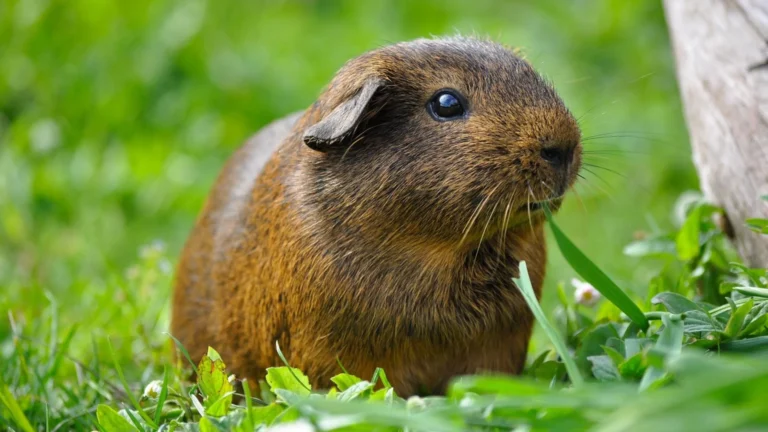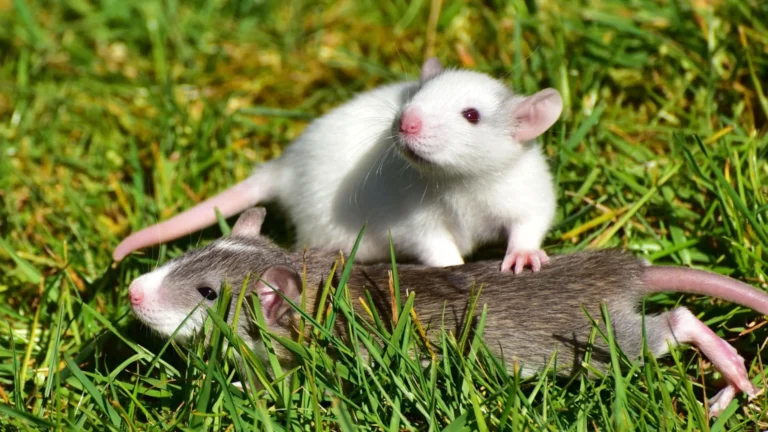How Long Do Hamsters Live: Pet Lifespan Guide
Table of Contents
Pet hamsters win hearts with their small size and cute personalities. Knowing how long hamsters live is key to caring for them well. Most hamsters live between 1.5 to 3 years in captivity. Their lifespan depends on several important factors.
The life of your hamster can change based on its breed, genetics, diet, and living space. Syrian hamsters usually live a bit longer than dwarf ones. Understanding the typical hamster lifespan helps you create a healthy and happy home for them.
Looking after a hamster means being dedicated and informed. By knowing their special needs and health issues, you can make sure they live well. This guide will dive into the details of hamster lifespans. It aims to help you make the most of your pet’s time with you.
Understanding Different Hamster Species and Their Lifespans
Choosing a pet hamster means knowing about different species. Each has its own lifespan and care needs. This knowledge helps you pick the right hamster for you.
Hamsters vary in size, lifespan, and behavior. Your choice affects how long and how well your hamster will live.
Syrian Hamsters (Golden Hamsters)
Syrian hamsters live 2-3 years in captivity. They are big, with a golden coat, and like to be alone. They need their own space because they are territorial.
- Average lifespan: 2-3 years
- Size: Largest hamster species
- Color variations: Golden, brown, white
Dwarf Hamster Varieties
Dwarf hamsters live 1.5-2 years. They are small and social. Some can live together, but it depends on the breed.
| Dwarf Hamster Type | Average Lifespan | Unique Characteristics |
|---|---|---|
| Campbell’s Dwarf | 1.5-2 years | Small, social, multiple color variations |
| Winter White | 1.5-2 years | Changes coat color in winter |
Roborovski Hamsters
Roborovski hamsters live the longest, up to 3-4 years. They are tiny and very active. They are the smallest hamsters kept as pets.
- Smallest hamster species
- Longest potential lifespan: 3-4 years
- Extremely quick and active
Tip: Think about more than just how long a hamster lives. Consider their personality and care needs to find the best match for you.
How Long Do Hamsters Live in Captivity
Hamsters in captivity live longer than those in the wild. This is because they get regular care, protection, and medical help. Knowing how long hamsters live in homes is key for both new and current owners.
Each type of hamster lives a different amount of time in captivity. The right care can help your hamster live as long as possible. Here are the lifespans for some common pet hamsters:
- Syrian Hamsters: 2-3 years
- Dwarf Hamsters: 1.5-2 years
- Roborovski Hamsters: 3-3.5 years
To make your hamster live longer, you need to know what they need. Captive hamsters need several important things to live a long life:
- Good food all the time
- A safe place to live
- Check-ups with the vet
- Less chance of being hurt by predators
| Hamster Type | Average Lifespan in Captivity | Key Longevity Factors |
|---|---|---|
| Syrian Hamsters | 2-3 years | Stable diet, low stress |
| Dwarf Hamsters | 1.5-2 years | Proper cage size, minimal handling |
| Roborovski Hamsters | 3-3.5 years | Consistent environment, genetic factors |
How long your hamster lives depends on your care. By meeting their needs and creating a caring home, you can help your hamster live a long and happy life.
Factors That Impact Hamster Life Expectancy
Knowing what affects your hamster’s life can help you care for them better. Many things together decide how long your hamster will live.
Genetic Predisposition
Genetics are key in how long a hamster can live. Each breed has its own health and life span.
- Syrian hamsters live 2-3 years
- Dwarf hamsters live 1.5-2 years
- Roborovski hamsters can live 3-4 years with good care
Diet and Nutrition Requirements
Good food is vital for your hamster’s health and life. A balanced diet keeps them healthy for longer.
| Nutritional Component | Recommended Daily Intake | Health Impact |
|---|---|---|
| Protein | 16-20% | Muscle maintenance |
| Fiber | 10-15% | Digestive health |
| Fat | 4-7% | Energy and metabolism |
Environmental Conditions
Your hamster’s home greatly affects their health and life. Stress reduction and proper habitat management are key to a long life.
- Keep the temperature between 65-75°F
- Give them a clean, big cage
- Reduce loud noises and sudden moves
- Handle them gently and often
“A well-cared-for hamster is a happy and healthy hamster”
Common Health Issues Affecting Hamster Lifespan
Knowing about hamster health is key to keeping your pet hamster alive longer. Hamsters can get sick with serious conditions that hurt their health and life span.
Some big health problems that can hit your hamster include:
- Wet Tail Disease: A deadly digestive issue that causes bad diarrhea
- Respiratory infections that can be very dangerous
- Dental issues that make eating hard
- Skin parasites and mites
Spotting symptoms early is very important for your hamster’s health. Look out for signs like:
| Health Condition | Key Symptoms | Recommended Action |
|---|---|---|
| Wet Tail | Watery stool, lethargy, hunched posture | Immediate veterinary care |
| Respiratory Infection | Wheezing, nasal discharge, reduced activity | Veterinary examination within 24 hours |
| Dental Issues | Difficulty eating, drooling, weight loss | Professional dental check |
Your hamster’s life expectancy greatly depends on catching and treating health problems early. Regular vet visits and careful care can stop many serious issues.
Essential Care Tips for a Longer Hamster Life
Caring for hamsters needs a lot of attention and knowing their special needs. By following good hamster care tips, you can help your pet live a long and healthy life. This guide will show you how to make a great home for your furry friend.
Proper Housing Setup
A cozy home is key for your hamster’s happiness. Pick a cage that’s big enough for them to move around and explore. The best home should have:
- Minimum cage size of 24 x 12 inches
- Soft, absorbent bedding material
- Multiple hiding spots and tunnels
- Solid wheel for exercise
Dietary Guidelines
What your hamster eats is very important for their health. Give them a diet that’s full of nutrients:
| Food Type | Recommended Portion | Frequency |
|---|---|---|
| Commercial Hamster Pellets | 1-2 tablespoons | Daily |
| Fresh Vegetables | Small amount | 2-3 times per week |
| Protein Sources | Occasional seeds/insects | 1-2 times per week |
Exercise and Enrichment
Hamsters need both mental and physical fun. Make sure they get:
- Regular wheel exercise
- Chew toys for dental health
- Supervised playtime outside the cage
- Puzzle feeders and interactive toys
Remember, each hamster is unique. Watch how your pet acts and change their care as needed.
Signs of Aging in Hamsters
As your hamster gets older, you’ll see small changes. These signs show they’re aging. Knowing how long hamsters live means spotting these changes in their older years.
Aging hamsters show clear signs that owners should look out for:
- Reduced mobility and decreased activity levels
- Changes in fur texture and potential thinning
- Subtle weight loss or reduced muscle mass
- Decreased grooming habits
- Slower reflexes and less energetic behavior
Physical appearance changes can be particularly telling in an aging hamster. Their coat might lose its shine, and you’ll see more gray hairs. They look unkempt. Their movements slow down, unlike the quick energy of younger hamsters.
“Observing your hamster’s daily behavior is crucial in understanding their aging process and maintaining their quality of life.” – Veterinary Hamster Care Association
Behavioral shifts are also key signs of aging. Older hamsters sleep more, explore less, and are more sensitive to changes. These changes are natural and part of aging. They shouldn’t worry you right away.
Regular vet visits are important. They help track these changes and ensure your hamster gets the right care in their senior years.
Creating an Optimal Living Environment
Creating the right habitat is key when caring for hamsters. They need a space that supports their health and happiness. This space should be designed with care.
Temperature is very important for your hamster’s health. Keep it between 65-75°F. Avoid drafts and direct sunlight. Extreme temperatures can stress them out and shorten their life.
- Keep the habitat away from windows and heating vents
- Use a reliable room thermometer to monitor temperature
- Provide a warm, draft-free sleeping area
Reducing stress is also crucial. Choose a quiet spot for their cage. This helps them feel calm and safe.
- Place the cage in a calm room
- Minimize sudden movements around their habitat
- Maintain a consistent daily routine
Lighting cycles are important too. Give them 12-14 hours of darkness and gentle light when they’re active. This helps them stay healthy and happy.
Cleaning their habitat regularly is essential. Clean the cage weekly and change the bedding. Make sure they have fresh water and food. A clean, comfy home keeps them healthy and long-lived.
Preventive Healthcare and Veterinary Care
Keeping your hamster healthy means regular vet visits and watching them closely. The care you give affects how long your hamster lives. Catching problems early can help your pet live longer.
Regular Health Checks at Home
Doing health checks at home is key. Check your hamster weekly to make sure they’re okay:
- Check weight and body condition
- Inspect fur for any patches or unusual changes
- Examine eyes, ears, and teeth for signs of infection
- Observe overall activity and behavior patterns
Common Warning Signs
Watch out for these signs that might mean your hamster needs help:
- Lethargy or decreased activity
- Unexpected weight loss
- Difficulty breathing
- Changes in eating or drinking habits
- Unusual discharges from eyes or nose
When to Seek Veterinary Help
See a vet if your hamster shows signs that won’t go away. Call for an appointment if your hamster has:
- Continuous respiratory issues
- Extended periods of inactivity
- Visible wounds or skin problems
- Significant changes in bodily functions
Good preventive care means your hamster will live a long, happy life. Always talk to a vet who knows about exotic pets for the best advice.
Maintaining Your Hamster’s Quality of Life
Caring for hamsters is more than just feeding them. As they get older, their happiness matters a lot. Knowing how to keep them mentally and emotionally healthy is key.
Here are some tips to keep your hamster happy and healthy:
- Provide age-appropriate toys and activities
- Adjust habitat setup to accommodate reduced mobility
- Offer gentle social interaction
- Monitor comfort levels and emotional state
Keeping your hamster’s mind active is important as they age. Gentle engagement helps prevent boredom and keeps them emotionally balanced. You can try:
- Soft tunnels for exploration
- Puzzle feeders with easy-to-access treats
- Quiet play sessions
- Carefully supervised interaction time
| Age Stage | Quality of Life Considerations | Recommended Actions |
|---|---|---|
| Young Adult | High Energy | Complex toys, active play |
| Middle Age | Moderate Activity | Balanced stimulation, comfortable spaces |
| Senior | Low Energy | Soft bedding, gentle interactions |
Every hamster is different. Listen to what they like and change your care plan as needed. With love and attention, your hamster can live a happy and comfortable life.
Conclusion
Knowing how long hamsters live is key to giving them the best care. Syrian hamsters usually live 2-3 years, while dwarf hamsters live a bit less. How long your hamster lives at home depends on your care.
Good care means a safe place, the right food, and watching your hamster’s health. Regular vet visits, good food, and fun activities are important. Each hamster type needs different care, so knowing this helps keep them happy and healthy.
Genetics affect hamster lifespan, but your actions matter more. By following this guide, you can help your hamster live a long, happy life. Love, care, and understanding are the most important things for your hamster’s health and happiness.
Every hamster is special, and with the right care, their life can be full and joyful. Your love and effort can make their short life meaningful and fun for both of you.







